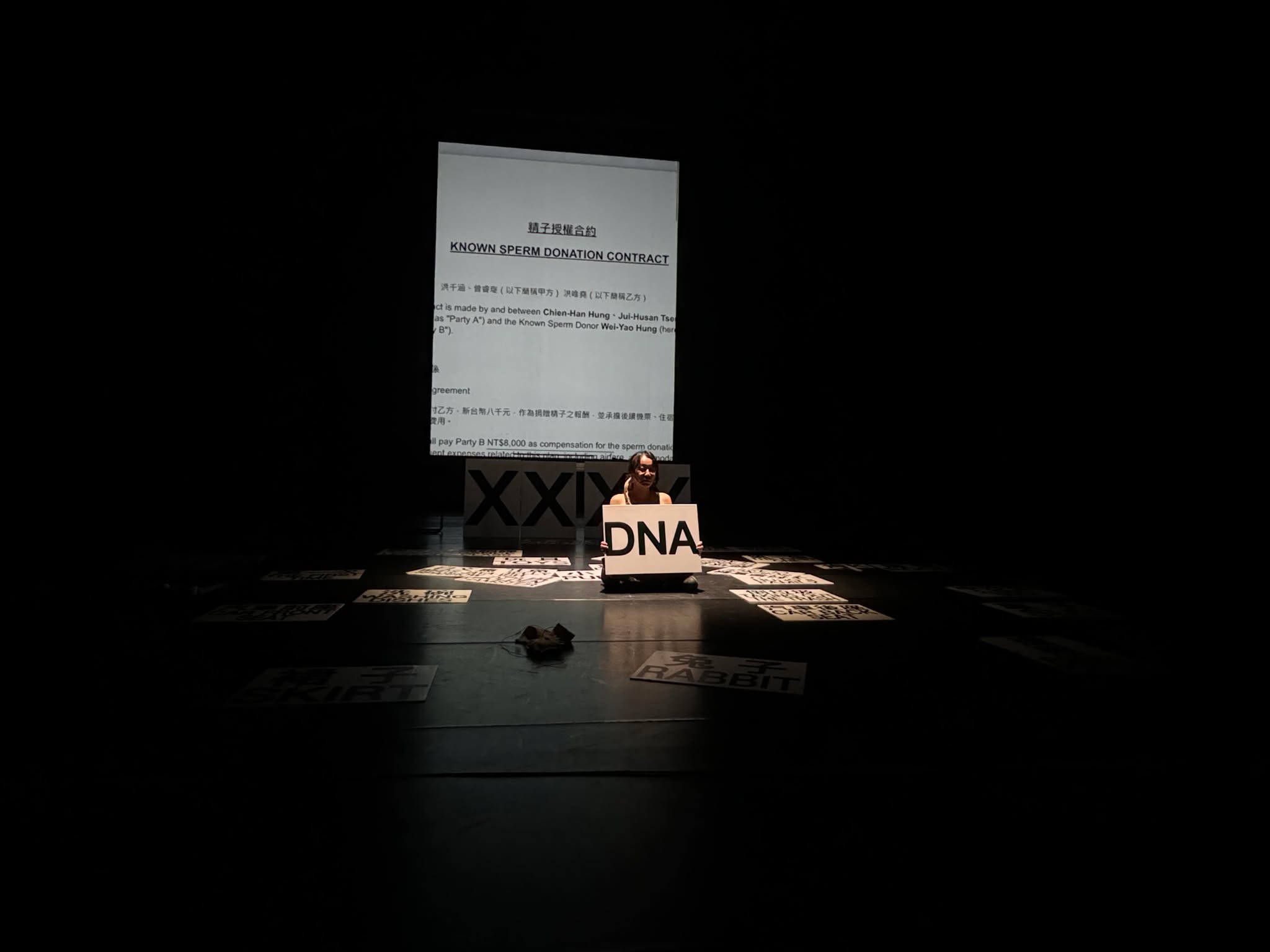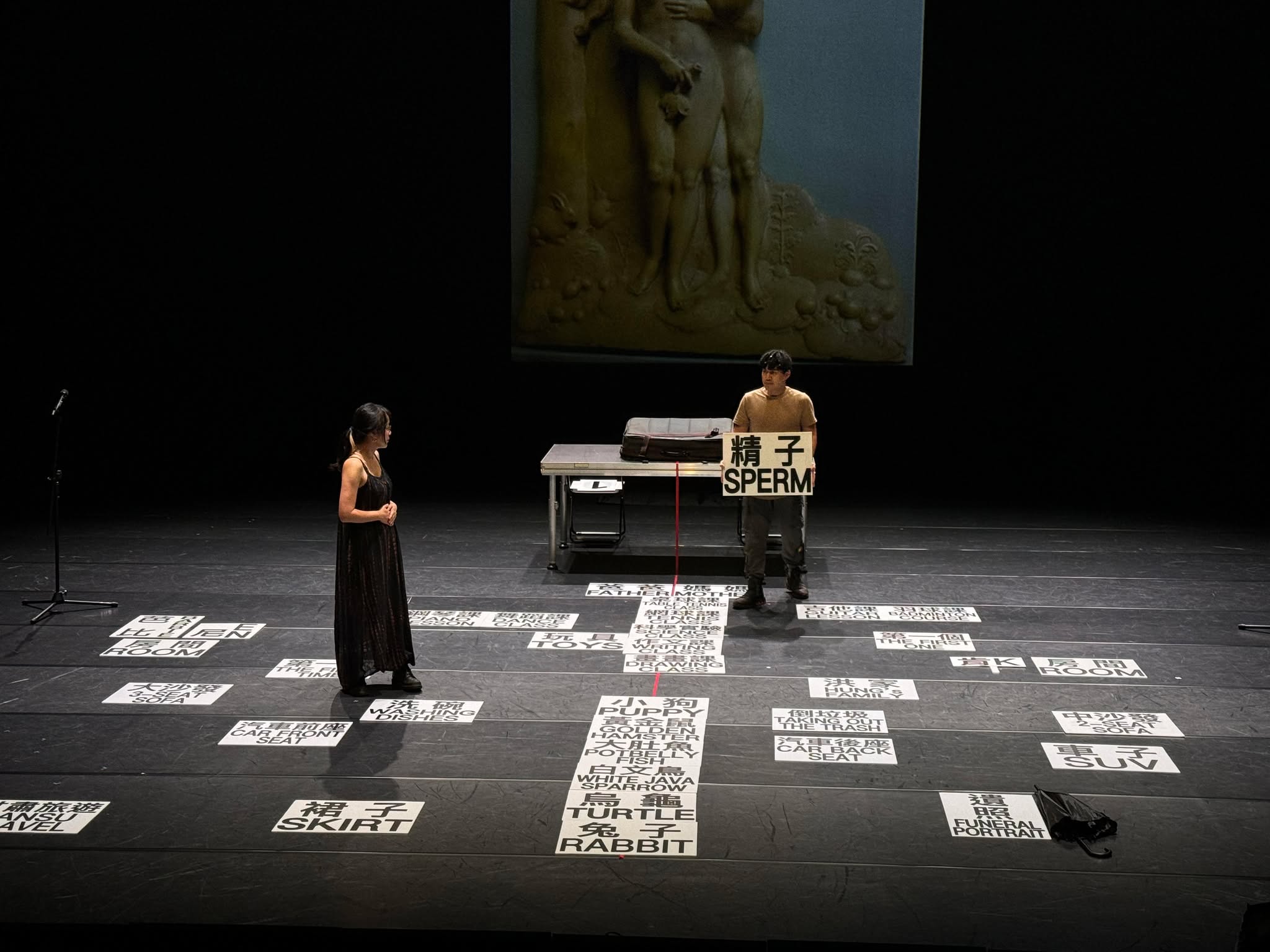New Life, Can It Come from Me?
New Life, Can It Come from Me?
People often like to say to their loved ones, “Home is where you are.” An ideal home is one that not only provides an intimate sense of belonging, but also serves as a refuge and a place for growth. Today, what are our ideas and expectations of home or, rather, family?
A family is made up of and defined by people. A new life, once born, clings to its parents. This is evolutionarily natural, like the spreading of branches and leaves. Even though most societies have established laws and institutions for adoption, people in societies, and more specifically Taiwan’s society, still harbor a profound desire for biological children to continue their bloodline. This desire will undoubtedly persist. Following the passage of same-sex marriage laws, this question has been brought into sharper focus: How can same-sex couples raise children and continue their bloodlines?


This is a real-life question posed by same-sex couple HUNG Chien-Han and Ray TSENG. Once they were married, they hoped to have a child of their own. So, they came up with an innovative idea: They would combine sperm obtained from HUNG Wei-Yao, Chien-Han’s brother, and an egg from Ray. It would be Chien-Han who would be impregnated and bring this new life into the world. Family Triangle was born from this vision of building a family together. In the Dao De Jing, Laozi wrote, “The Dao produces one, one produces two, two produces three, and three produces all things.” The universe has emerged from chaos and this new life requires the collaborative efforts of three individuals, which led to the title.
This work, in which the focus is on the reproductive process of a lesbian couple, is partly a lecture performance in which Chien-Han, Ray, and Wei-Yao discuss what they have learned and their struggles on stage and attempt to understand the kind of family they want to create. At the same time, these three individuals rummage through their personal experiences, as if conducting an archaeological excavation to trace the lives of their ancestors. Through fragmented memories, interviews, and data, they piece together the true nature of the families into which they were born.
Is it possible that the sperm and the egg are no longer the smallest units of life? Can we go a step further and consider them gene carriers? Can the pursuit of blood ties be quantified? In other words, is genetic similarity proof of one’s child? When technology transforms needs into possibilities, what impacts will there be on existing social institutions and ethics? No one can avoid thinking about these questions except if they live outside of society. What exactly is reproduction? What are ethical norms? More controversial issues include decoupling of marriage and childbirth and surrogacy. These are intensely debated topics in Taiwan in 2025.
In Family Triangle, Chien-Han, Ray, and Wei-Yao play themselves, sharing their real and fictitious questions and reflections on creating new life. In addition to redefining the relationships among the three of them and their relationships with their offspring, they present numerous reflections based on two-person relationships and on an individual level. Examples of the former are the exploration of sibling boundaries and issues of inheritance and the choice of surname for the newborn. The latter encompasses the visibility of transgender and non-binary individuals within families and in terms of reproductive behavior, and the pain felt by and the power inherent in the female body during the reproductive process. They present the legal, economic, and emotional dilemmas and considerations, enabling audiences to witness a highly experimental process. Who am I? Where do I come from? What kind of family do I want to create? These are universal and nearly eternal questions that everyone ponders at different stages of and times in life. Human sorrows and joys may differ. However, facing the unknown, making irreversible decisions under time constraints, and the tensions and checks and balances within relationships are unavoidable. Although a new life has not yet been born, the work Family Triangle has been released into the world, inviting audiences to examine and imagine the possibilities for family, love, and life.